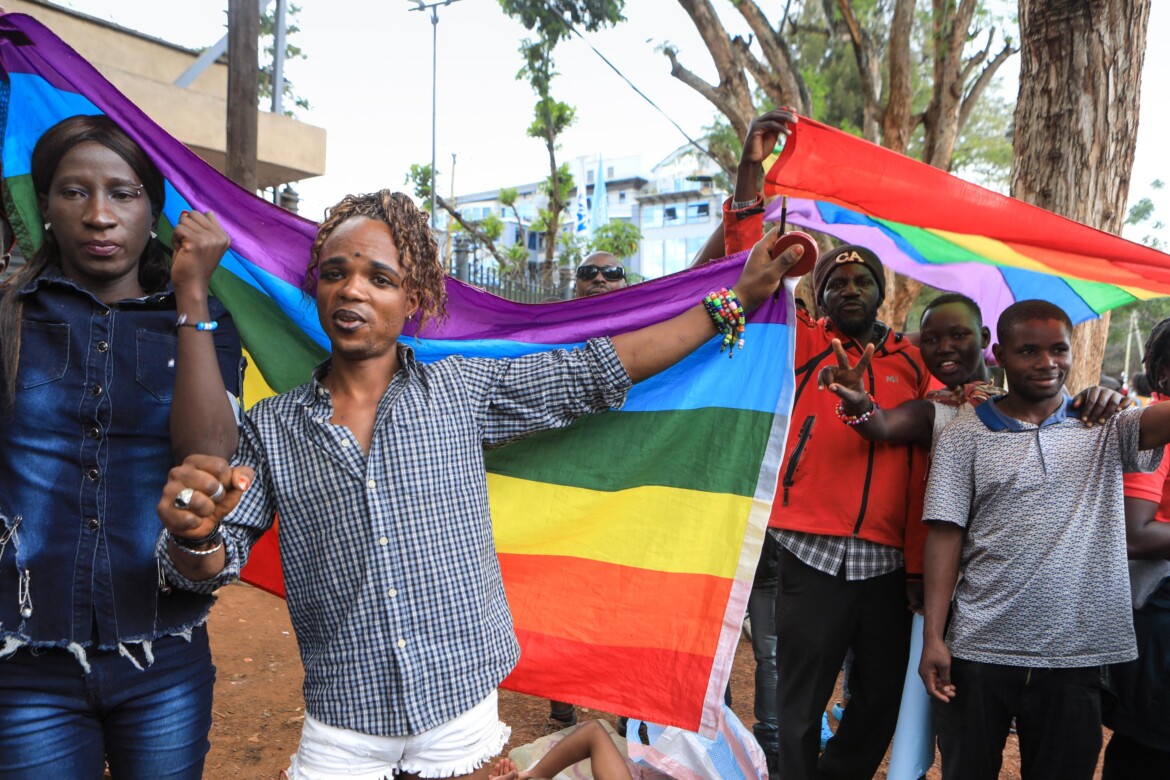Reportage
Kenya’s transition
The court ruled that S.C., as a transgender Kenyan citizen, is entitled to equal treatment, freedom from discrimination, privacy, freedom from torture and other inhuman treatment, and the liberty and security guaranteed by several articles of the Constitution of Kenya.

A new chapter is starting for Kenya’s transgender community, thanks to a ruling issued by the High Court in Eldoret on August 12. Moving from a single case, the court has traced the lines of a legal and political framework aimed at redefining the social status of transgender, intersex, and gender non-conforming individuals, who until now have been deprived of all legal and social protection. The court’s Constitutional and Human Rights Division ruled on a petition filed by an individual, S.C., against the Director of Public Prosecutions and other parties.
S.C. was arrested for “impersonation” on July 14, 2019, while at Moi Teaching and Referral Hospital. She was initially taken to the women’s section of Eldoret Prison and then subjected to invasive medical procedures without her consent, including a “gender determination” exam, hormone level tests and blood tests. Together with the NGO Transgender Education Advocacy, S.C. later filed a constitutional petition seeking her recognition as a transgender person and protection from the discrimination she and many others have suffered. The court ruled that S.C., as a transgender Kenyan citizen, is entitled to equal treatment, freedom from discrimination, privacy, freedom from torture and other inhuman treatment, and the liberty and security guaranteed by several articles of the Constitution of Kenya.
Specifically, the ruling refers to Article 27(4) of the Constitution, which prohibits "discrimination on any ground, including race, sex ... social origin, gender ... birth or other status."
Many NGOs that joined the case recognized the decision as a “victory for trans people” throughout Kenya. In a joint statement released by Amka Africa, the Kenya Human Rights Commission and other organizations, they said: “We acknowledge the years of suffering that transgender persons have endured in the country. Today, we honour S.C. and every transgender individual who has stood to reaffirm the meaning of dignity.” The organizations added that they are ready to support legislative work, staff training, and public participation to ensure "the court's decision becomes a lived reality across the country."
The real turning point comes in the ruling’s conclusions: in addition to ruling that S.C. is entitled to financial compensation, Judge Reuben Nyakundi urged the government to introduce a Transgender Protection Rights Act, a law that would “ensure equal protection and recognition” for transgender people. He also called for a review of the existing Intersex Persons Bill (2024), which does not acknowledge any rights for the trans community. Both the court and the NGOs involved also called for measures to make prisons and police stations safe for the community, so that the previously recorded human rights violations are not repeated.
“This decision is not only a personal victory for S.C. but a clear recognition that transgender people in Kenya are entitled to constitutional protections. By affirming her dignity, the court acknowledged the violence she suffered and set a precedent that cannot be ignored,” Lolyne Ongeri of Jinsiangu Kenya, which provided financial assistance and protection to S.C. during the trial, explained to il manifesto.
While the Kenyan Constitution is one of the most progressive ones passed in Africa in recent times, the law does not currently provide adequate tools to protect transgender people. “We need a framework that includes legal recognition of trans identity, protection from discrimination in employment and the housing market, healthcare, education tailored to our needs, and a reform of the Prison Act that guarantees safety in custody.” These changes, Ongeri continued, are what “give constitutional rights real value in everyday life.”
The legal vacuum also clashes with the demands of younger generations. Riding a wave of growing awareness, organizations like Jinsiangu have emerged to promote the rights of the transgender, intersex, and gender non-conforming (ITGNC) community, alongside groups like Galk+, which aims to spread queer culture, freedom of expression and self-determination.
In Nairobi and other counties, more and more safe spaces are appearing where the community gathers to build an alternative to the official narrative. “For too long, we have lived with legal invisibility and a lack of recognition,” Ongeri said. This ruling, she said, finally affirms the right to “define one’s own identity, and this is invaluable in a context where the public perception of trans people is often shaped by prejudice and misinformation.”
The journey, however, is only just beginning. “Legally, a space is now opening up for NGOs and trans activists to work with Parliament to formulate a law that specifically protects and promotes our rights.” On a social level, however, “we need awareness and sensitization campaigns, a public discourse that reduces stigma and removes negative attitudes.” The law is not enough, she noted, “if society remains hostile.” Healthcare workers, police, educators, and every public servant “must receive adequate training. We want safe platforms to make our voices heard within communities, schools, and workplaces,” she concluded.
Seizing this opportunity, these organizations and movements are ready to commit to a bottom-up restructuring aimed at dismantling discrimination and redefining their active role in civil society.
Originally published at https://ilmanifesto.it/la-transizione-del-kenya on 2025-09-07
